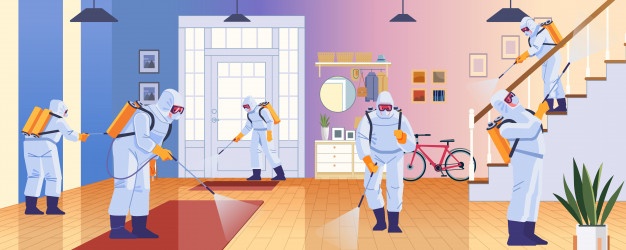Do You Know How Covid Spreads?
Sat 12:13 pm +01:00, 16 Jan 2021
Writing for Unherd, King’s College London lecturer Stuart Richie says that Government messaging has been too slow to squash a popular misconception on the transmission of COVID-19. According to a recent poll, 16% of the population think the main way the virus spreads is by “fomite” transmission – the technical term for touching objects or surfaces with the virus on them. But this is wrong, says Ritchie.
Dangerously wrong because, amid much uncertainty, and despite the relentless messaging on handwashing, one thing that’s become very clear about the coronavirus is that it doesn’t spread much by fomites. Researchers have been hard-pressed to find many examples of outbreaks that can be traced to a contaminated surface (there are only a couple of possible exceptions). The Centres for Disease Control in the US have relegated this type of transmission to near the bottom of the list on their “How Covid Spreads” page – just above “catching it from your pet”.
At the beginning of the pandemic, the UK Government took up handwashing in a big way (you’ll recall all the exhortations to sing Happy Birthday twice while scrubbing away). Back then, it was understandable: we were completely in the dark on how the virus spreads, and were modelling our response on diseases we knew better, like the flu. But nearly a year later, handwashing and hand sanitiser are still at the forefront of the advice, and “hands” is still the first item on Government broadcasts on posters and elsewhere. Science has downgraded the importance of fomites, so why does our messaging still feature them so prominently?…
There’s still debate over the proportion of Covid cases that are due to larger droplets versus smaller, floating airborne particles (also known as “aerosols”). But the scientific consensus, and it’s really been quite clear since early 2020, is that the majority of Covid cases are spread in these two ways, not by touching things. If the virus is airborne, it could defeat the strategy of staying two metres apart, since it can waft through the air to infect people much further away. Keeping rooms well-ventilated seems, in theory and in practice, to be a way to reduce risk; but the polling, as well as lots of anecdotal evidence about office workers still sitting in closed rooms with their colleagues all day, suggests that much more work is needed to get this message across.
Worth reading in full.
Lockdown sceptics won’t like his comments on masks, but they’ll be able to refer people to this piece who still insist on spraying their weekly shop with disinfectant.
https://lockdownsceptics.org/










